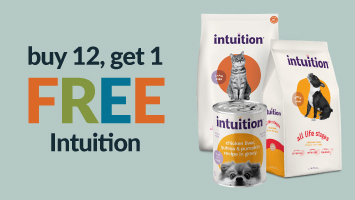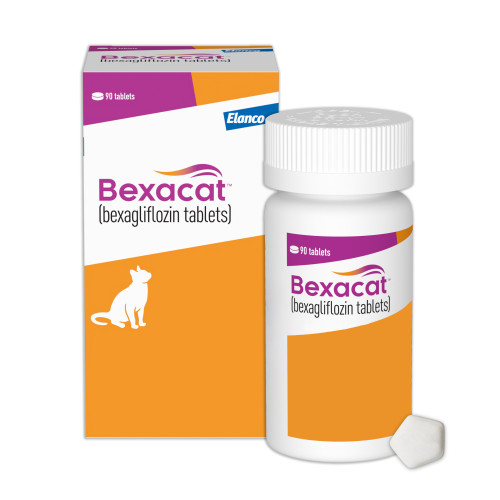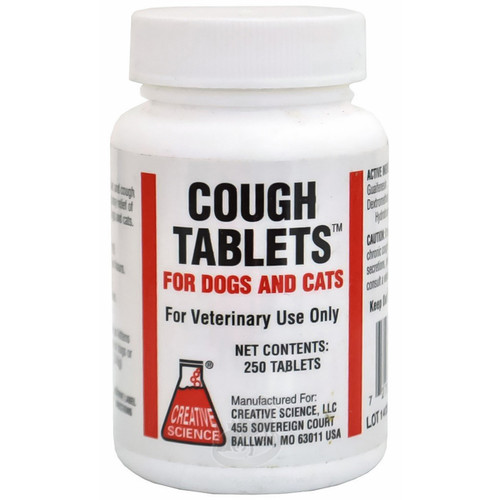Product details
Maropitant is a neurokinin (NK-1) receptor antagonist used as an antiemetic (prevents nausea and vomiting) in dogs and cats.
This product is a tablet formulation.
-
Maropitant tablets have an FDA-approved indication for the prevention of acute vomiting and the prevention of vomiting due to motion sickness in dogs.
-
Extra-label use in cats has been documented for certain conditions, including the treatment and prevention of vomiting due to motion sickness or chronic kidney disease.
-
May cause localized skin irritation in some individuals; wash hands thoroughly with soap and water after handling.
-
May be prescribed for other animal species; please consult your veterinarian.
-
While this drug does not have an FDA-approved indication for all animal uses, it is commonly accepted for veterinarians to prescribe this medication for use in animals.
*Please note: This is a generic medication. Product packaging and appearance, including size, color, and shape, may differ from the description or images provided and are subject to manufacturer availability.
Product sourced directly from the manufacturer or their approved distributor. Guaranteed genuine product backed by the manufacturer.
For
Dogs and Cats
Active ingredient(s)
Maropitant citrate
Common brand names
Cerenia Tablets
Drug class
Neurokinin (NK-1) receptor antagonist
Product strength & size
Maropitant tablets may be available in multiple strengths and/or sizes. Please ensure the selected product and package size are appropriate for your pet, as recommended by your veterinarian.
For current availability, please refer to the product selection above.
Usage
Maropitant Tablets should be given orally as directed by your veterinarian. Wash your hands thoroughly with soap and water after handling the medication. Please consult your veterinarian before making any changes or discontinuing the prescribed dosing schedule.
This medication can be given with or without food; however, giving with a small amount of food may help prevent gastrointestinal side effects. Do not wrap tablets tightly in food, as this may affect how well the medication will work.
Avoid giving this medication with a full meal, especially if it is being given to prevent vomiting associated with motion sickness/travel.
If your pet vomits or appears unwell after receiving a dose on an empty stomach, give future doses with a small amount of food or a treat. If vomiting continues, contact your veterinarian.
Missed doses
Administer the dose as soon as possible. If it is almost time for the next dose, skip the missed dose and continue with the regular schedule. Do not give two doses at once.
Storage
Store in a cool, dry place at a controlled room temperature (68 to 77°F, excursions permitted between 59 and 86°F), or as otherwise indicated by the manufacturer packaging/product insert.
Keep this medication in its original packaging and out of the reach of children and pets. Only remove 1 tablet at a time from the foil-backed blister card and return the card to the box to protect from light. Tablets should remain sealed and only taken out of the blister pack at the time of dosing.
If you were instructed to split the tablets, wrap the remaining portion tightly in the blister pack foil and store securely until it is time for the next dose.
Store away from heat and direct sunlight. Do not store in the bathroom, near the kitchen sink, or in damp places. The medicine may break down if exposed to heat or moisture.
Side effects
This medication is generally well tolerated, and side effects are considered uncommon.
Possible side effects include (but may not be limited to) stomach upset (e.g., vomiting, diarrhea), decreased appetite, hypersalivation (drooling), and lethargy/decreased energy level.
Contact your veterinarian immediately if your pet has a seizure, convulsions, muscle tremors, or if any signs of an allergic reaction (e.g., facial/throat swelling, rash, difficulty breathing) occur.
Notify your veterinarian if your pet experiences any of the effects described above, or if you notice any other side effects that are persistent or troublesome.
If you notice anything unusual, please consult your veterinarian.
Precautions
This medication can cause localized skin irritation in some individuals. Wash your hands thoroughly with soap and water after handling. In case of accidental eye exposure, flush with water for 15 minutes and seek medical attention.
Use with caution in animals with liver impairment/disease, arrhythmias (abnormal heart rhythms), gastrointestinal obstruction (blockage), or those that have ingested toxins. Caution is also advised when higher doses of maropitant are administered to puppies younger than 11 weeks of age.
The safe use of this medication has not been evaluated in breeding, pregnant, or lactating animals. Discuss the risks of using this medication with your veterinarian if your pet is in one of these groups.
Do not administer to animals with a known history or suspected allergy/hypersensitivity to this medication or any of its ingredients. Allergic reactions to medications may occur. Be sure to inform Vetsource and your veterinarian if your pet has any known drug sensitivities or allergies.
If your pet displays symptoms of an allergic reaction, discontinue therapy and call your veterinarian immediately or seek emergency veterinary attention. Symptoms may include (but are not limited to): swollen lips, tongue, face, or airways; difficulty breathing; agitation; profuse salivation; and widespread hives or itching.
Drug and food interactions
The following drugs* may have potential interactions with this medication:
azole antifungals (e.g., itraconazole, ketoconazole), benzodiazepines (e.g., diazepam), calcium channel blockers (e.g., amlodipine, diltiazem), clomipramine, corticosteroids (e.g., dexamethasone, prednisone), hydroxyzine, NSAIDs, opioids, phenobarbital, sotalol, SSRIs (e.g., fluoxetine, sertraline), tramadol, and warfarin.
*NOTE: this may not be a comprehensive list. Contact your veterinarian if your pet experiences any unusual reactions when different medications are given together.
Please ensure your veterinarian is aware of all medications and supplements that your pet is currently receiving. Your veterinarian may prescribe multiple medications, even if a potential drug interaction may occur. In these instances, your veterinarian may adjust the dosages or monitor your pet more closely.
Adverse reactions
If you are concerned that your pet has experienced an adverse reaction to this medication, please contact Vetsource Pet Owner Care at 877-738-4443.
Overdose
If you have any reason to suspect an overdose, call your doctor/veterinarian or the appropriate poison control resource immediately.
For humans:
The national toll-free Poison Help line, 1-800-222-1222, will connect you to your local poison center in case of emergency. This service is available nationwide and in most U.S. territories.
For animals:
The ASPCA Animal Poison Control Center is available 24 hours a day, 365 days a year at 888-426-4435.
Pet Poison Helpline® also provides a 24/7 animal poison control service at 855-764-7661.
*Please note: this information is for third-party services and is provided for convenience in case of potential poison-related emergencies. There may be consultation fee for these services.
Disclaimer
The content provided on this page is NOT medical advice.
All content, including the images and product description above, is intended for general informational purposes only and should not be considered a substitute for professional veterinary consultation, diagnosis, or treatment.
Consult your veterinarian for complete information about this product and how it fits into your pet's individual treatment plan.
Last revised: 7/23/2025

















